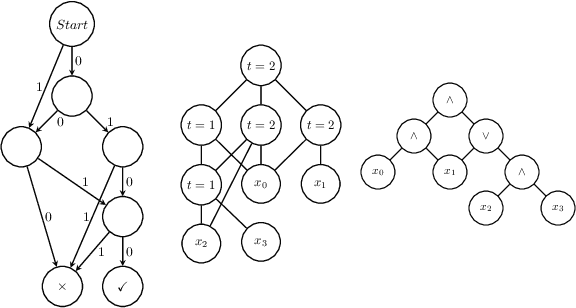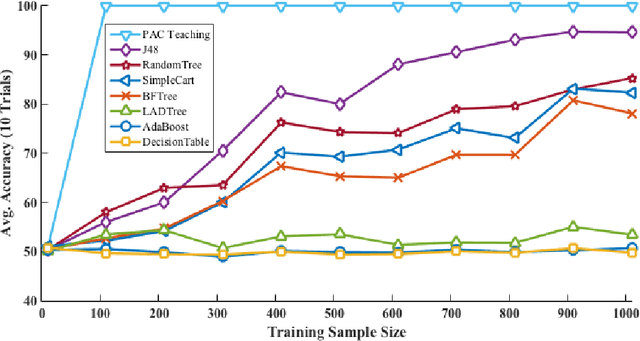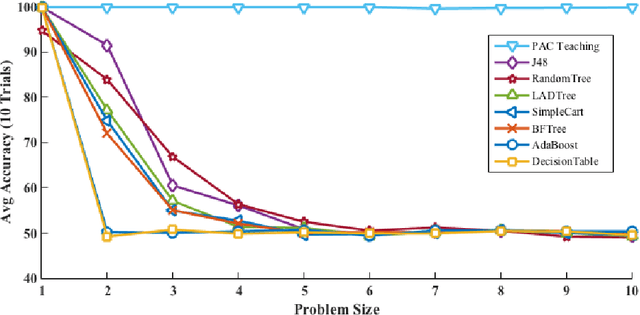Teaching with IMPACT
Paper and Code
Mar 14, 2019



Like many problems in AI in their general form, supervised learning is computationally intractable. We hypothesize that an important reason humans can learn highly complex and varied concepts, in spite of the computational difficulty, is that they benefit tremendously from experienced and insightful teachers. This paper proposes a new learning framework that provides a role for a knowledgeable, benevolent teacher to guide the process of learning a target concept in a series of "curricular" phases or rounds. In each round, the teacher's role is to act as a moderator, exposing the learner to a subset of the available training data to move it closer to mastering the target concept. Via both theoretical and empirical evidence, we argue that this framework enables simple, efficient learners to acquire very complex concepts from examples. In particular, we provide multiple examples of concept classes that are known to be unlearnable in the standard PAC setting along with provably efficient algorithms for learning them in our extended setting. A key focus of our work is the ability to learn complex concepts on top of simpler, previously learned, concepts---a direction with the potential of creating more competent artificial agents.
 Add to Chrome
Add to Chrome Add to Firefox
Add to Firefox Add to Edge
Add to Edge